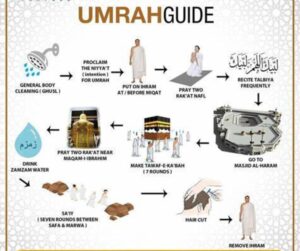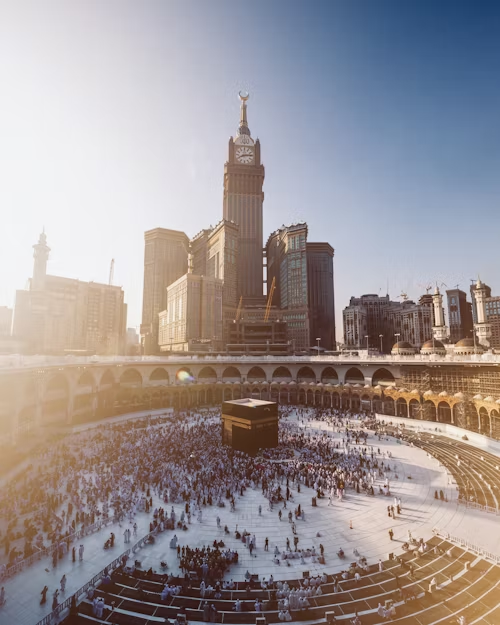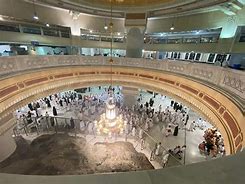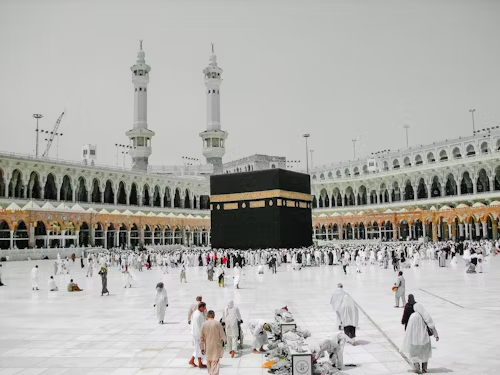The Importance of Ihram and Its Rituals for Umrah
Ihram, a state of spiritual purity and physical simplicity, is the foundational step in the pilgrimage of Umrah. It is a sacred state that Muslims must enter before performing the rites of Umrah, symbolizing the pilgrim’s devotion, humility, and equality before Allah. This blog post explores the profound significance of Ihram, its rituals, and the spiritual transformation it fosters in pilgrims.
Understanding Ihram
The term 'Ihram' refers both to the sacred state a pilgrim enters and the special garments worn during Umrah. For men, the Ihram consists of two white, unstitched sheets of cloth—one wrapped around the waist and the other draped over the shoulder. Women wear modest, plain clothing that covers their entire body, except for the face and hands, reflecting simplicity and humility.
Significance of Ihram
1.Symbol of Purity and Simplicity: Ihram signifies a state of physical and spiritual purity. The simple white garments strip away distinctions of wealth, status, and nationality, emphasizing the equality of all Muslims before Allah. This universal attire fosters a sense of unity and brotherhood among pilgrims.
2.Reminder of Mortality: The white Ihram garments resemble the shroud in which Muslims are buried, reminding pilgrims of their mortality and the transient nature of worldly life. This reflection encourages a focus on spiritual growth and repentance.
3.Commitment to Worship: Entering Ihram marks a pilgrim’s sincere intention (niyyah) to perform Umrah. This intention is a declaration of devotion and commitment to fulfilling the rites of pilgrimage with a pure heart and focused mind.
Rituals of Ihram

1.Niyyah (Intention): The first step in entering the state of Ihram is making a sincere intention to perform Umrah. This intention is made verbally or in the heart, affirming the pilgrim’s dedication to undertaking the sacred journey.
2.Ghusl (Ritual Purification): Before donning the Ihram garments, pilgrims perform Ghusl, a ritual purification involving a full-body wash. This act symbolizes the cleansing of physical and spiritual impurities, preparing the pilgrim for the sacred state.
3.Donning the Ihram Garments: After Ghusl, pilgrims change into the simple white garments of Ihram. Men wear two unstitched cloths, while women wear plain, modest clothing. These garments must be free of any sewn items or luxury, reflecting the pilgrim’s humility and equality.
4.Talbiyah (Invocation): Once in the state of Ihram, pilgrims recite the Talbiyah, a prayer that expresses their readiness and eagerness to perform Umrah. The Talbiyah is repeated frequently throughout the pilgrimage, reinforcing the pilgrim’s spiritual focus:
"Labbayk Allahumma labbayk, labbayka la sharika laka labbayk, innal-hamda wan-ni'mata laka wal-mulk, la sharika lak." (Here I am, O Allah, here I am. Here I am, You have no partner, here I am. Verily, all praise, grace, and sovereignty belong to You. You have no partner.)
Rules and Prohibitions During Ihram

While in the state of Ihram, pilgrims must adhere to specific rules and prohibitions to maintain the sanctity of this state:
1.Avoiding Personal Grooming: Pilgrims must refrain from cutting their hair or nails, using scented products, and wearing perfume. These restrictions emphasize a focus on spiritual matters over physical appearance.
2.Prohibition of Harmful Actions: Engaging in arguments, fighting, or any form of harm to others, including animals and plants, is strictly prohibited. This fosters an atmosphere of peace and compassion.
3.Modesty and Humility: Pilgrims must uphold modesty in their behavior and dress. For men, covering the head is prohibited, while women should not cover their faces and hands.
4.Spiritual Transformation Through Ihram: The experience of Ihram fosters profound spiritual transformation. By shedding worldly attachments and embracing simplicity, pilgrims develop a heightened sense of humility and devotion. The restrictions and rituals of Ihram serve as a constant reminder of the pilgrim’s purpose, encouraging introspection, repentance, and a deep connection with Allah.
Conclusion
Ihram is not merely a physical state but a profound spiritual journey that prepares Muslims for the sacred rites of Umrah. It symbolizes purity, equality, and devotion, fostering a sense of unity and humility among pilgrims. By adhering to the rituals and rules of Ihram, pilgrims embark on a transformative experience that deepens their faith and brings them closer to Allah.
Book an Appointment with Us:

If you need any help regarding application process and got any query, feel free to contact us. We are your true companions and we respect our dignity.
If you want to know about how to apply for japan, click here.
If you want to know about OUR HUNGARY STUDENT VISA, click here.







